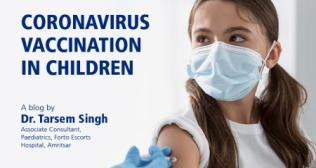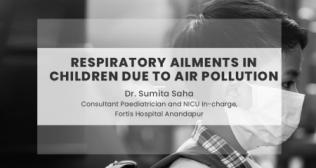
Why Regular Paediatric Check-ups and Vaccinations Matter for Your Child’s Well-being
Regular check-ups are crucial for infants and new-borns. Often new parents make the mistake of thinking that vaccination and doctor’s consultation at birth is enough. To detect any underlying health problems, it is crucial to follow up with doctors. These routine visits to the paediatrician allow for early detection and prevention of potential health issues, as well as monitoring the child’s growth and development.
1. Routine Health Check-up: Routine check-ups are essential for identifying potential health issues before they escalate. During these visits, paediatricians can detect developmental delays, nutritional deficiencies, and other concerns early, allowing for timely intervention and effective management of health problems.
2. Monitoring Holistic Development: During these visits, doctors track the child's physical and physiological growth and developmental milestones, ensuring they are on the right track.
3. Establishing Healthy Habits for the child: New parents are always curious about how to established healthy habits for the child. Paediatricians provide guidance on nutrition, exercise, and other healthy habits that can have a lifelong impact.
4. Fostering a Strong Doctor-Patient Relationship: Consistent visits help establish trust and rapport between the child, parents, and the paediatrician, facilitating open discussions about health concerns and ensuring effective communication.
Importance of Vaccinations:
Timely vaccinations give your child a 90% chance of being protected from diseases that vaccines can prevent. Since different illnesses can affect children at different ages, it’s important for you, as a parent or caregiver, to keep up with vaccinations to keep your child safe.
1. Preventing Serious Diseases: Vaccinations protect children from potentially life-threatening diseases such as measles, polio, and whooping cough by building a strong immunity.
2. Herd Immunity: Herd immunity through vaccination occurs when a significant portion of a population is vaccinated against an infectious disease, reducing the overall spread of the disease. Vaccinating your child helps protect the community by reducing the spread of contagious diseases, especially to those who are too young or unable to be vaccinated.
3. Long-term Protection: Vaccines offer long-term protection, often lasting many years or even a lifetime. This enduring immunity helps prevent disease outbreaks and reduces healthcare costs. By maintaining high vaccination rates, communities ensure continued public health, support herd immunity, and protect vulnerable individuals, contributing to overall societal well-being.
4. Ensuring Safety and Effectiveness: Vaccines are subjected to rigorous testing to confirm their safety and efficacy for children. This comprehensive process ensures that they are both effective in preventing diseases and safe for use. The benefits of vaccination, such as protection against serious illnesses and widespread disease prevention, far outweigh the minimal risks involved.
Regular paediatric check-ups and vaccinations are critical components of a comprehensive healthcare plan for children. They not only ensure individual health but also contribute to the overall well-being of the community. By staying on top of these routine visits and vaccinations, parents can give their children the best start in life.
Here's a detailed Baby Immunization Schedule based on the Indian Academy of Pediatrics Committee on Immunization (IAPCOI) recommendations:
- Birth
BCG, Hep B1, OPV
- 6 weeks
DTwP /DTaP1, Hib-1, IPV-1, Hep B2, PCV 1,Rota-1
- 10 weeks
DTwP /DTaP2, Hib-2, IPV-2, Hep B3, PCV 2, Rota-2
- 14 Weeks
DTwP /DTaP3, Hib-3, IPV-3, Hep B4, PCV 3, Rota-3*
- 6 Months
Influenza-1
- 7 Months
Influenza -2
- 6 – 9 Months
Typhoid Conjugate Vaccine
- 9 Months
MMR 1 (Mumps, measles, Rubella)
- 12 Months
Hepatitis A- 1
- 12 – 15 Months
PCV Booster
- 15 Months
MMR 2, Varicella
- 16 – 18 Months
DTwP /DTaP, Hib, IPV
- 18 – 19 Months
Hepatitis A- 2**, Varicella 2
- 4 – 6 years
DTwP /DTaP, IPV, MMR 3
9 – 15years (Girls)
HPV (2 doses)
- 10 – 12 Years
Tdap/ Td
- 2nd, 3rd, 4th and 5th Year
Annual Influenza Vaccine
Categories
Clear allMeet the doctor

- Paediatrics | Paediatrics
-
8 Years
-
1000

















